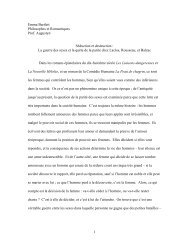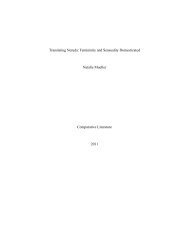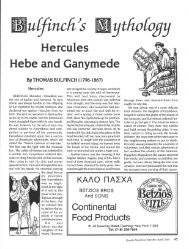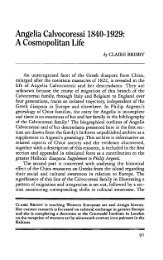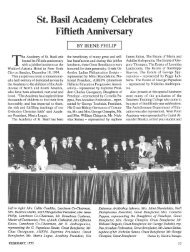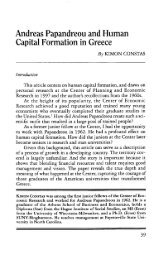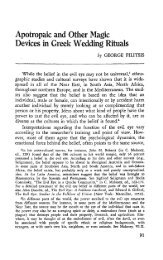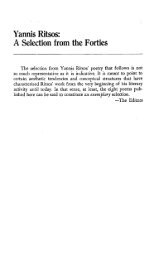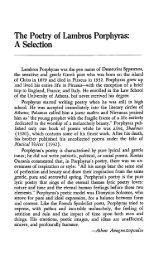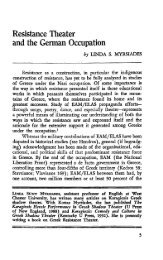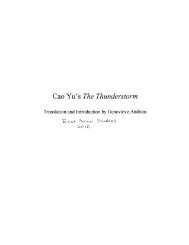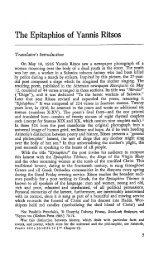Periphrastic Verb Phrases in Spanish:
Periphrastic Verb Phrases in Spanish:
Periphrastic Verb Phrases in Spanish:
Create successful ePaper yourself
Turn your PDF publications into a flip-book with our unique Google optimized e-Paper software.
In this phrase, the boy does not walk. He isn't necessarily go<strong>in</strong>g anywhere. The<br />
speaker of the sentence has a pejorative concept of what the boy is do<strong>in</strong>g: mess<strong>in</strong>g with<br />
people. Andar is modify<strong>in</strong>g the mean<strong>in</strong>g of meterse. You could also say this phrase as <strong>in</strong><br />
sentence 2, without the verb andar, but it loses the displeasure on the part of the speaker:<br />
2. Este chico se mete con la gente.<br />
This boy (reflexive) messes with people.<br />
In fact, sentence 2, while not really eloquent due to the more colloquial usage of<br />
meterse (which can also mean to put or to place, and can itself be used periphrastically)<br />
would probably be more acceptable <strong>in</strong> a rigid social environment than sentence 1. The<br />
use of andar <strong>in</strong> periphrastic phrases is very colloquial. The change <strong>in</strong> mean<strong>in</strong>g is evident<br />
from the examples above. In sentence 1, we can certa<strong>in</strong>ly note that the mean<strong>in</strong>g of andar<br />
is not to walk, although <strong>in</strong> nonnal circumstances, and <strong>in</strong> all social environments, andar<br />
means to walk. Interest<strong>in</strong>gly enough, however, this verb is commonly used <strong>in</strong> many<br />
colloquial expressions. For <strong>in</strong>stance, a young Colombian friend of m<strong>in</strong>e once used the<br />
expreSSiOn:<br />
3. Esta n<strong>in</strong>a y yo, andamos muy bien.<br />
Literally: This girl and I, we walk very well.<br />
This girl and 1 get along really well.<br />
Andar <strong>in</strong> the you <strong>in</strong>fonna1 command fonn is often used as an exclamation that<br />
someth<strong>in</strong>g another speaker said or did is ridiculous, questionable, or not beJieved at all.<br />
A professor <strong>in</strong> Spa<strong>in</strong> once said to me, <strong>in</strong>credulously because I was carry<strong>in</strong>g a t<strong>in</strong>y<br />
bil<strong>in</strong>gual dictionary (which she deemed <strong>in</strong>adequate):<br />
6



